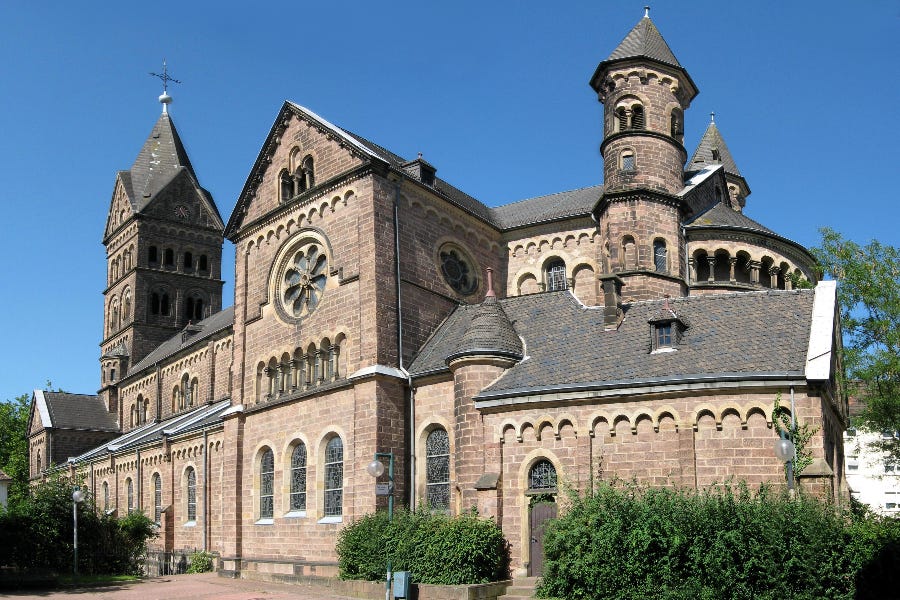
A popular bishop overlooked abuse survivors and failed to take consistent action against perpetrators while leading one of Germany’s oldest dioceses in the 1970s, according to a study released Friday.
The 52-page interim report by historians at the University of Trier, issued on Dec. 16, offered a damning assessment of the Diocese of Trier’s handling of abuse cases under Bishop Bernhard Stein’s leadership from 1967 to 1980.
The study identified 305 victims and 81 suspects or perpetrators during Bishop Stein’s 13 years in office. It concluded that diocesan officials were aware of at least 17 of the suspects or perpetrators at the time.
In a four-page summary, the report’s authors said that although “Bishop Stein undoubtedly fulfilled his obligation” to investigate cases, they were addressed internally as the diocese “avoided cooperation with the public prosecutor’s office in order to avoid a scandal.”
“Stein’s record on sanctions also looks modest,” they noted. “The local bishop ordered retreats for nine accused and confessing priests, but he by no means did so consistently in all cases; disciplinary transfers followed; severe canonical sanctions, such as expulsion from the priesthood, were pronounced only against two repeat offenders.”
The authors added that “according to the files, Bishop Stein did not speak with affected persons in any case.”
Trier’s current Bishop Stephan Ackermann said that Bishop Stein, who died in 1993, was known today as a bishop who was “shaped by the experience and theology of the Second Vatican Council” and championed the resolutions the Würzburg Synod, a 1971-1975 event seen as a forerunner of Germany’s “synodal way.”
“The study … emphasizes that it does not claim to be an overall assessment of Bishop Stein’s ministry. Nevertheless, it must be noted that a massive shadow falls on the image of the open-minded and popular bishop,” Bishop Ackermann wrote.
He added that the diocese would accept Trier city council’s judgment on whether a square next to Trier Cathedral honoring Bishop Stein should be renamed.
“Independently of this, I could imagine using Bischof-Stein-Platz as a place to remember those affected by sexualized violence in the Diocese of Trier,” Bishop Ackermann said.
The study was originally due to be published in October, but it was delayed after the discovery of new files and the emergence of new witnesses.
The study was written by historians Lutz Raphael and Lena Haase on behalf of an independent commission for the reappraisal of sexual abuse in the Trier diocese. Researchers examined around 500 files and conducted interviews with contemporary witnesses.
The independent commission released an 85-page interim report in August on cases in the Diocese of Trier from 1946 to 2021. It said it had so far identified 513 victims and 195 perpetrators of abuse.
The commission’s work is being followed closely by German media as it will also investigate Cardinal Reinhard Marx’s tenure as bishop of Trier from 2002 to 2008. Cardinal Marx is the archbishop of Munich and Freising, coordinator of the Vatican Council for the Economy, and a member of Pope Francis’ Council of Cardinals.
The commission is also expected to touch on the role of Bishop Georg Bätzing, the chairman of Germany’s bishops’ conference, who served as vicar general of the Trier diocese from 2012 until his appointment as bishop of Limburg in 2016.
The commission, launched in June 2021, aims to produce an annual interim report as it builds up to the publication of a comprehensive final report. Its work is expected to take six years.
Several German dioceses have published independent reports on the handling of clerical abuse cases, dating back decades, including the Archdiocese of Cologne, the Archdiocese of Munich and Freising, and the Diocese of Münster.
Other dioceses have commissioned reports, such as the Diocese of Essen, the Archdiocese of Freiburg, the Diocese of Mainz, and the Diocese of Passau.
In the wake of the reports, several senior German prelates have offered their resignations to Pope Francis. They include Hamburg’s Archbishop Heße, Cologne’s Cardinal Rainer Maria Woelki, and Munich’s Cardinal Reinhard Marx. The pope has so far declined to accept the resignations.
It emerged this week that the Vatican has received a canonical complaint against Bishop Franz-Josef Bode, the deputy chairman of the German bishops’ conference, concerning his handling of abuse cases in the Diocese of Osnabrück.



